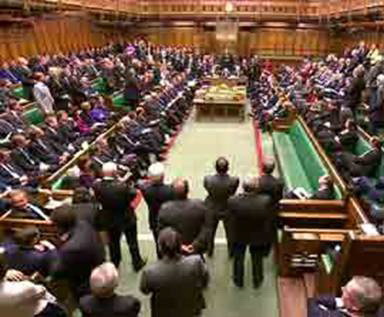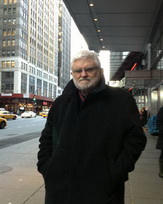There is a danger in labeling, be it of a person, their ideas and politics
or a position that we don’t agree with as traditional or progressive.
Too often such an action becomes a rallying cry for the gathering of
groups either anxious to be associated with a particular point of view or in
opposition to an idea.
This
has been evident in recent years within the Church. Many issues have arisen that
have brought about such a division. The subsequent argument from two differing
points of view is fine if the discussion is conducted with courtesy and care.
Too often, and this is especially true of Web exchanges, there has been a degree
of vitriol in some postings that fundamentally challenges Christian charity.
Yet we must recognise that when something of great importance is under
debate then arguments will be brought with passion and conviction. Within the
Christian family there must be the opportunity to talk with each other as we
seek to understand where the Gospel is taking us. We have to accept that no one
generation has the final say and that we must experience faith within the
developing understanding of the society in which we live. It was not without
significance that Edward Schillebeeckx bowed to the empty chair once occupied by
Galileo when he too was called to meet with the CDF.
Over and above all debate must come the recognition that an informed
conscience should be acknowledged by all concerned and in some instances that
will result in acceptance of disagreement.
The old dispute of the place of religion in the forming of political
judgment is never far from the surface in many countries. We often see it
arising in the political life of the
US
when the personal belief of a
politician clashes with the views of a secular society.
Now here in the
UK
, over the issue of recent
legislation that went through parliament affecting gay marriage, we had many
catholic MPs supporting the Bill.
As a result the Bishop of Portsmouth has provoked criticism from Catholic
MPs after saying that politicians who voted for same-sex marriage should be
denied Communion, as reported in the recent edition of the Tablet. The issue
crosses the political divide and also brings together those who voted either for
or against the new law.
This
is very difficult ground and the issue itself is hugely contentious. We cannot
legislate for a multicultural and often secular society from the particular
standpoint of one faith community. Each of us lives according to our belief, in
faith, struggling day by day, often with the many obstacles on the way. But
don’t let us have the added problem of interference by an authority that sees
the issue as clearly defined when there are so many shades of grey clouding the
argument.
Stephen Pound, a Labour MP who voted against the Bill, is quoted in the
Tablet posting: “As a Catholic who happens to be an
MP I am constantly fighting against the accusations of a Vatican ‘whip’, and
to impose the most terrifying of sanctions in this way guarantees that the
unthinking misconceptions that some hold of the Church will be reinforced.”
Conscience has led
many Christians to oppose a political position, often at great personal cost. In
the extreme, Dietrich Bonhoeffer, gave his life for his political conviction
that he could not reconcile the politics of
Germany
in the 40s with his Christian
faith. Their courage is humbling and deserves our admiration and respect.
Let us seek to act out of conviction and not as a result of a threat that
limits our personal responsibility. It must always be a matter of conscience.
END

